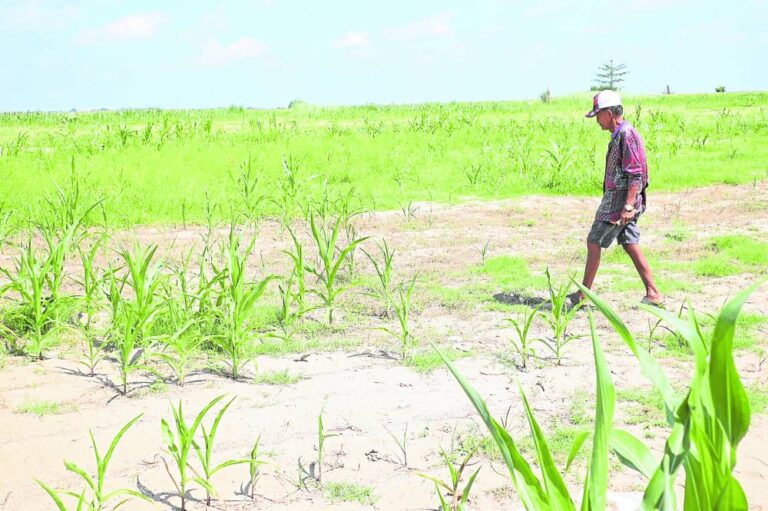
INQ Photo
CEBU CITY, Philippines — The public will have to endure the effects of El Niño until May.
The Philippine Atmospheric, Geophysical and Astronomical Services Administration stationed (Pagasa) in Mactan said in their El Niño Southern Oscillation (ENSO) Advisory No. 9, that “mature El Niño is expected to continue and show signs of weakening.”
“Majority of global climate models suggest that El Niño will likely persist until March-April-May 2024 season with a transition to ENSO-neutral in April-May-June 2024 season,” the advisory added.
Moreover, Pagasa added that stronger El Niño does not necessarily equate to strong impacts or emergence in all locations even if it increases the “likelihood of El Niño-related climate anomalies.”
READ: Drought may hit 30 areas in March due to El Niño – Pagasa
Jhomer Eclarino, Pagasa Mactan weather specialist, told CDN Digital that in Central Visayas, Cebu and Negros Oriental can experience a dry spell, while Siquijor and Bohol can experience dry condition.
Eclarino said that dry spell refers to the three consecutive months of below normal rainfall conditions, while dry condition refers to the two consecutive months of below normal rainfall conditions.
Moreover, Eclarino said since last year, Pagasa has already informed the public about the El Niño season, therefore they should have prepared for its effects.
Mitigating measures
With this, he urged the public to conserve water during this season, and when it suddenly rains, they may “harvest” rain waters.
“Padayon ta[ng] mag take [og] precautionary measures kapag sa kainiton sa panahon ilabi na magsugod ang tag-init sa Pilipinas or dry season, so [dapat] naa tay mga precautionary measures para malikayan nato ang sobrang kainiton sa panahon,” Eclarino said.
READ: NIA gears up for ‘strong El Niño’
As for the agriculture side, the National Irrigation Administration (NIA) in Cebu and Central Visayas has already created plans to combat the negative effects of the El Niño since last January.
Engineer Kieth Monteroso of NIA Cebu, said in a press briefing on Tuesday, Jan. 30, that NIA had already crafted their El Niño Action Plan which included mitigating measures like water distribution system, and alternate wet and dry distribution technology.
Agriculture vs El Niño
Meanwhile, Jose Llano, a farmer in Barangay Poblacion Vieja, Batuan, Bohol, said that he and his fellow farmers had already planted crops even before the El Niño started.
Llano shared this in an interview with NIA-7 that was posted on their Facebook page on February 28.
“When we were informed that the El Niño is coming, we already started planting because if the El Niño phenomenon will start in the month of April, we can harvest our produce right before the El Niño will come,” Llano said in Cebuano.
He added that if they would stop and just stand around, they would go hungry.
Meanwhile, the Department of Agriculture (DA) has already announced on February 25 through their Operations Center that they will distribute vegetable seeds and planting materials for high-value crops that require less water in the El Niño-affected areas.
Apart from DA, in Central Visayas, Department of Environment and Natural Resources (DENR-7) and Department of Health (DOH-7) recently convened on February 28 to address the impacts of the phenomenon.
The DOH-7 added that the agencies have already discussed measures that would address water security challenges, as well as emergency supplies for potential waterborne diseases among others.
READ: Bongbong Marcos reactivates Task Force El Niño